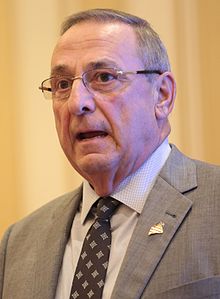 Every January, we are inundated with a firehose of public notice bills gushing from legislatures ranging from Connecticut to California and most states in-between. This year has been no different. PNRC is now following 83 separate pieces of legislation which almost certainly doesn’t include many other most-likely minor bills we haven’t been able to catch up with yet.
Every January, we are inundated with a firehose of public notice bills gushing from legislatures ranging from Connecticut to California and most states in-between. This year has been no different. PNRC is now following 83 separate pieces of legislation which almost certainly doesn’t include many other most-likely minor bills we haven’t been able to catch up with yet.
N.Y. paper sues county over pulled notices
 A newspaper based in Delaware County, N.Y. sued county officials in December, claiming they unlawfully canceled its public notice contract in retaliation for unfavorable news coverage. The Reporter, a weekly newspaper based in the county seat of Delhi, also alleges the county violated the First and Fourteenth Amendments by ordering its employees to refer all questions from the paper to the county attorney’s office.
A newspaper based in Delaware County, N.Y. sued county officials in December, claiming they unlawfully canceled its public notice contract in retaliation for unfavorable news coverage. The Reporter, a weekly newspaper based in the county seat of Delhi, also alleges the county violated the First and Fourteenth Amendments by ordering its employees to refer all questions from the paper to the county attorney’s office.
The lawsuit was filed in federal court by Decker Advertising, the agency that owns The Reporter.
Cuomo uses emergency powers to suspend notices
 Before it approved a budget in the early morning hours and left Albany last month as the coronavirus first struck the state with full force, the New York legislature granted Gov. Andrew Cuomo (pictured at left) emergency power to suspend laws he believes compromise public health. The governor has not been shy about exercising his new exigent authority.
Before it approved a budget in the early morning hours and left Albany last month as the coronavirus first struck the state with full force, the New York legislature granted Gov. Andrew Cuomo (pictured at left) emergency power to suspend laws he believes compromise public health. The governor has not been shy about exercising his new exigent authority.
On April 20, Cuomo issued an executive order that, among other things, allowed cities and towns in the state to file property tax assessment rolls up to 30 days later than the June 1 statutory deadline, and authorized them to publish the assessment notices “solely online so long as the date for hearing complaints is prominently displayed”.
New Kentucky public notice law maintains status quo ante
 After following a convoluted path that included two different bills, half a dozen amendments, five floor votes and a grand compromise, the Kentucky legislature passed a bill last week ensuring that the state’s public notice law would remain mostly unchanged.
After following a convoluted path that included two different bills, half a dozen amendments, five floor votes and a grand compromise, the Kentucky legislature passed a bill last week ensuring that the state’s public notice law would remain mostly unchanged.
The original public notice provisions of both HB195 and HB351 would have moved all government notice in the Bluegrass State from newspapers to government websites. Following a compromise earlier this year between the Kentucky Press Association (KPA) and the associations representing cities and counties in the state, HB195 was amended to exclude counties with population under 80,000. That amendment brought it closer to the state’s current law — passed two years ago and due to sunset this summer — which allows counties with population above 90,000 to run notices on their own websites; decreasing the population threshold by 10,000 would have increased the number of website-notice-only counties from eight to ten.
Another Governor Takes Aim at Public Notice
 We have found a governor whose animus for newspapers may exceed Chris Christie’s.
We have found a governor whose animus for newspapers may exceed Chris Christie’s.
Maine Gov. Paul LePage (photo on left) dislikes the papers in his state so intensely he vetoed a bill last month requiring them to continue to post public notices on their own websites at no extra charge to the state. Overwhelming majorities in the legislature overrode his veto the following week.
New York Bill Allows Emailing of Meeting Notices to Newspapers
![]() Gov. Andrew Cuomo signed a new law clarifying that public meeting notices required by state law may be emailed to newspapers for publication. A review of the applicable law indicates the statute formerly stated merely that notice “shall be given to the news media.” The bill signed by Gov. Cuomo adds the words “or electronically transmitted” to the statute. “This is a positive step that will save time in getting notices to the media and therefore getting them out to the public,” the president of the New York State Town Clerks Association told the Albany Times Union. The new law also requires notices of government meetings that are live streamed to the public to include the web address of the site streaming the meeting.
Gov. Andrew Cuomo signed a new law clarifying that public meeting notices required by state law may be emailed to newspapers for publication. A review of the applicable law indicates the statute formerly stated merely that notice “shall be given to the news media.” The bill signed by Gov. Cuomo adds the words “or electronically transmitted” to the statute. “This is a positive step that will save time in getting notices to the media and therefore getting them out to the public,” the president of the New York State Town Clerks Association told the Albany Times Union. The new law also requires notices of government meetings that are live streamed to the public to include the web address of the site streaming the meeting.
